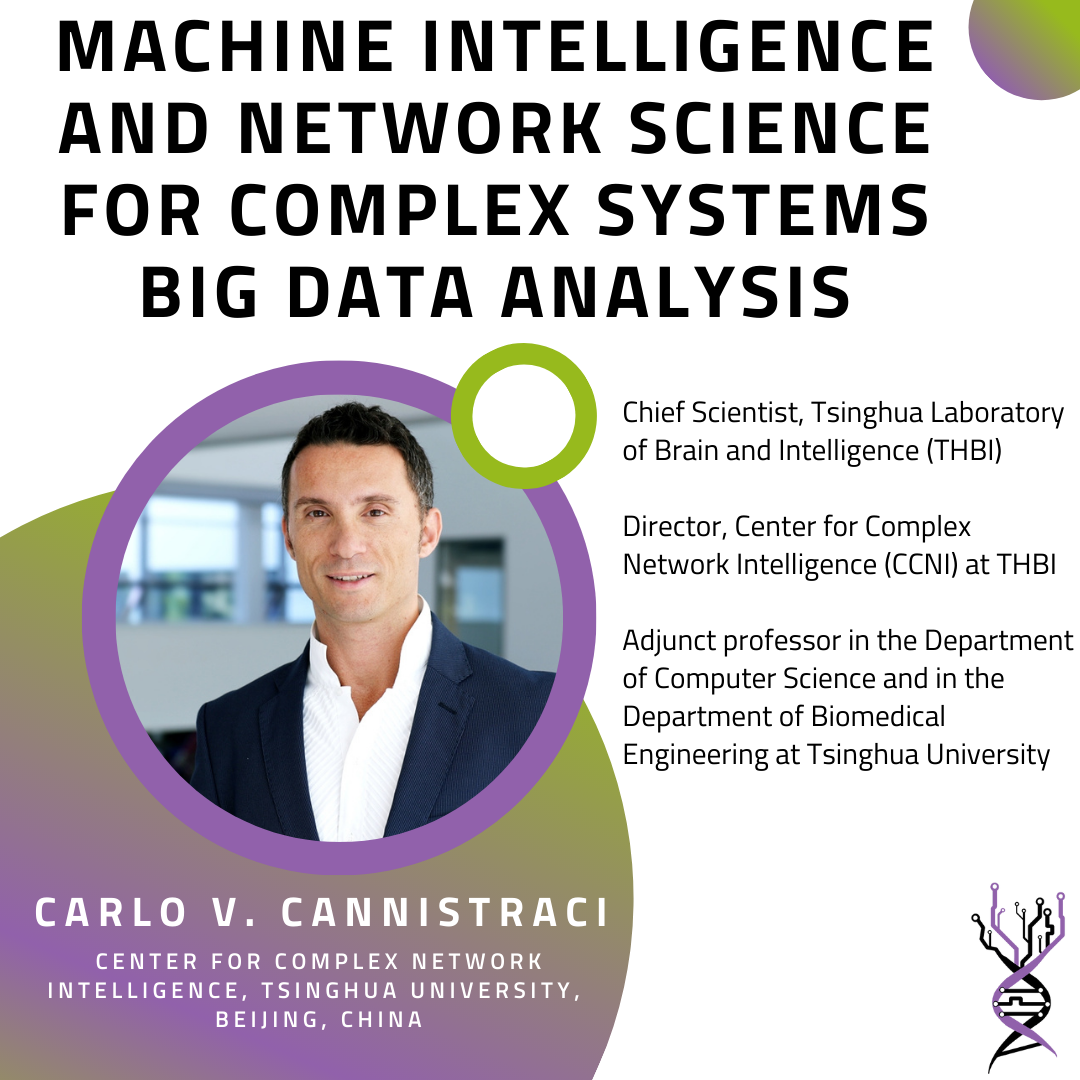 |
Prof. Dr. Carlo Vittorio Cannistraci
Director of Center for Complex Network Intelligence, Tsinghua University, Beijing, China
Prof. Cannistraci is a theoretical engineer developing breakthrough algorithms at the interface between information science, physics of complex systems, complex networks, and machine intelligence, with a particular focus on brain/life-inspired computing for big data analysis. Lecture title: Machine intelligence and network science for complex systems big data analysis |
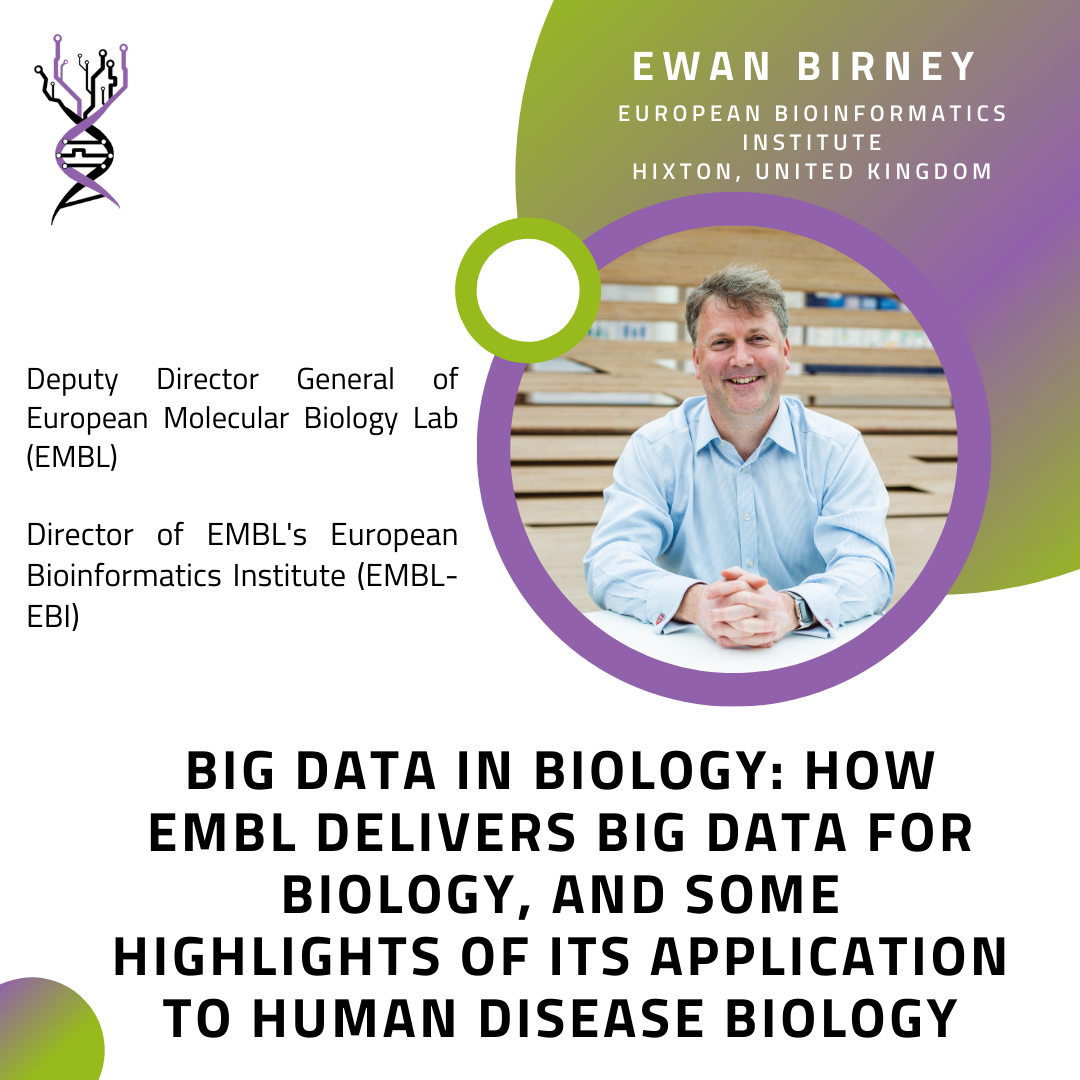 |
Prof. Dr. Ewan Birney
Deputy Director General of European Molecular Biology Laboratory (EMBL), director of EMBL’s European Bioinformatics Institute (EMBL-EBI), Hixton, United Kingdom
Prof. Birney led the analysis of the Human Genome gene set, mouse and chicken genomes and the ENCODE project, focusing on non-coding elements of the human genome. His main areas of research include functional genomics, DNA algorithms, statistical methods to analyze genomic information and use of images for chromatin structure. Lecture title: Big Data in Biology: How EMBL delivers big data for biology, and some highlights of its application to human disease biology |
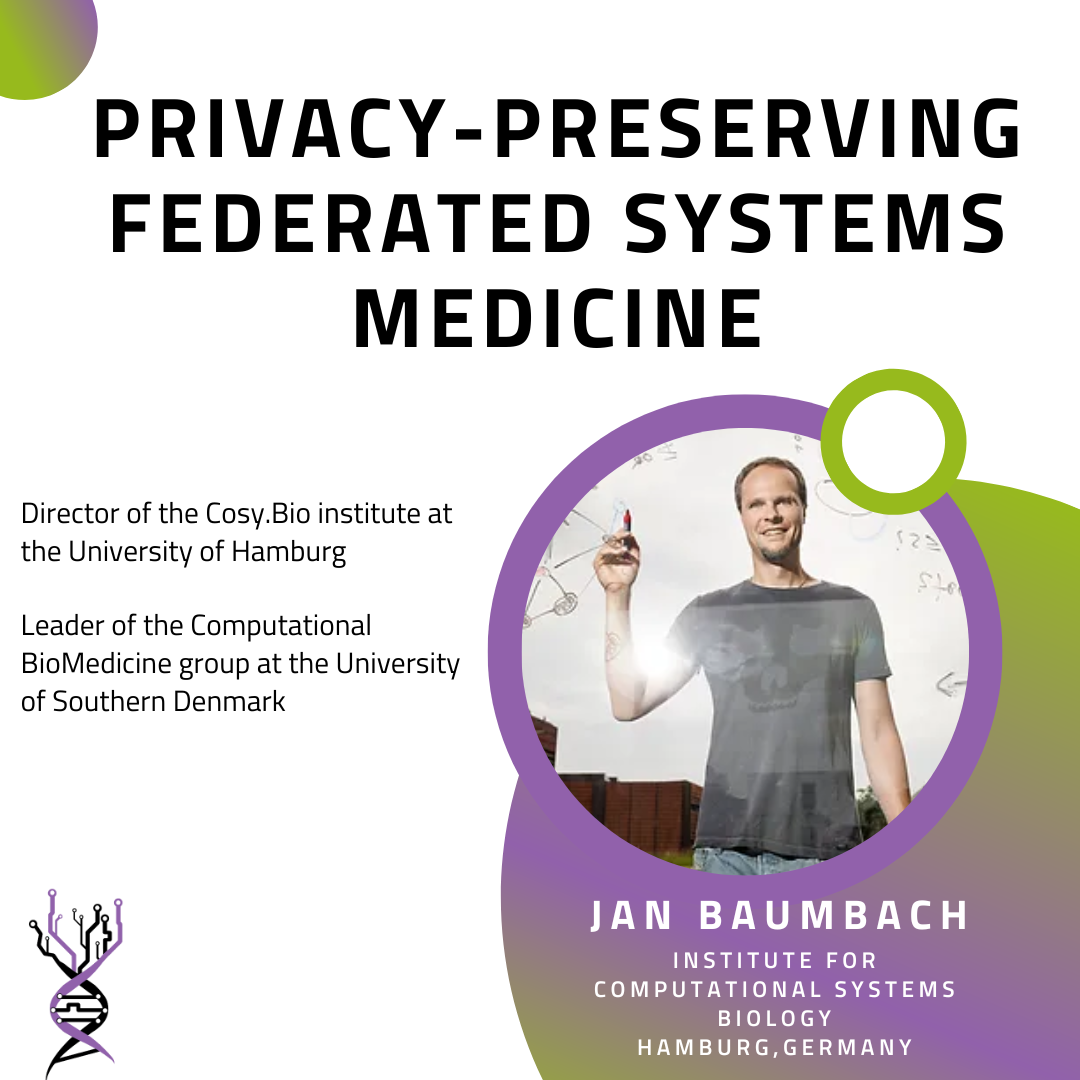 |
Prof. Dr. Jan Baumbach
Director of the Institute for Computational Systems Biology, Hamburg University, Hamburg, Germany
Prof. Baumbach is focused on investigation of the molecular mechanisms driving diseases using artificial intelligence methodology and combinatorial optimization. He and his team are developing privacy-preserving artificial intelligence tools to unleash the power of Big Data in precision medicine, where sensitive data may not be shared cross-institutionally for prediction model learning. Lecture title: Privacy-preserving federated systems medicine |
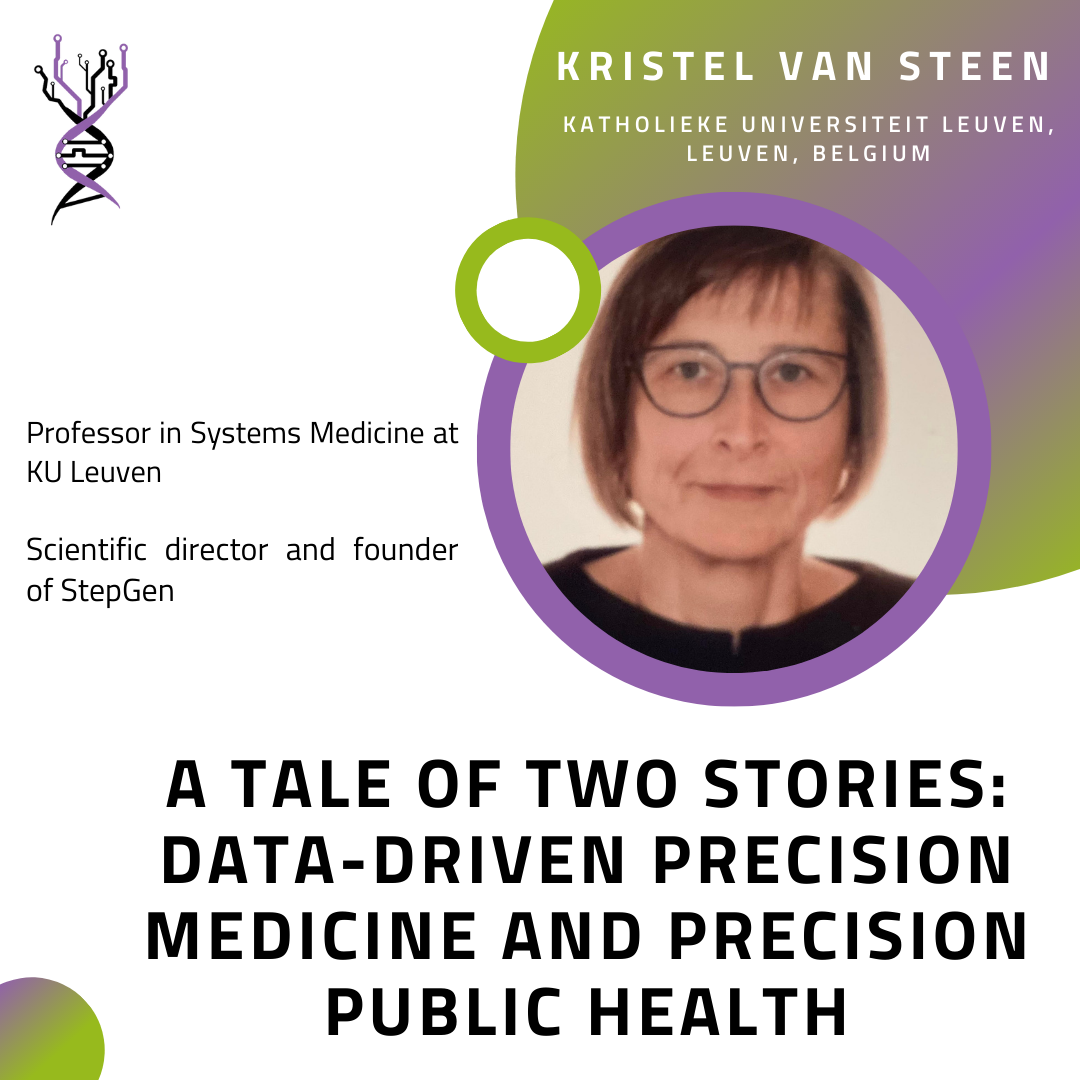 |
Prof. Dr. Kristel van Steen
Professor in Systems Medicine at KU Leuven, Leuven, Belgium
Prof. van Steen has built up a recognized expertise in developing and applying methods to detect gene ⋅ gene and gene ⋅ environment interactions and in unifying biological and statistical evidence in genetic epidemiology. Lecture title: A tale of two stories: data-driven precision medicine and precision public health |
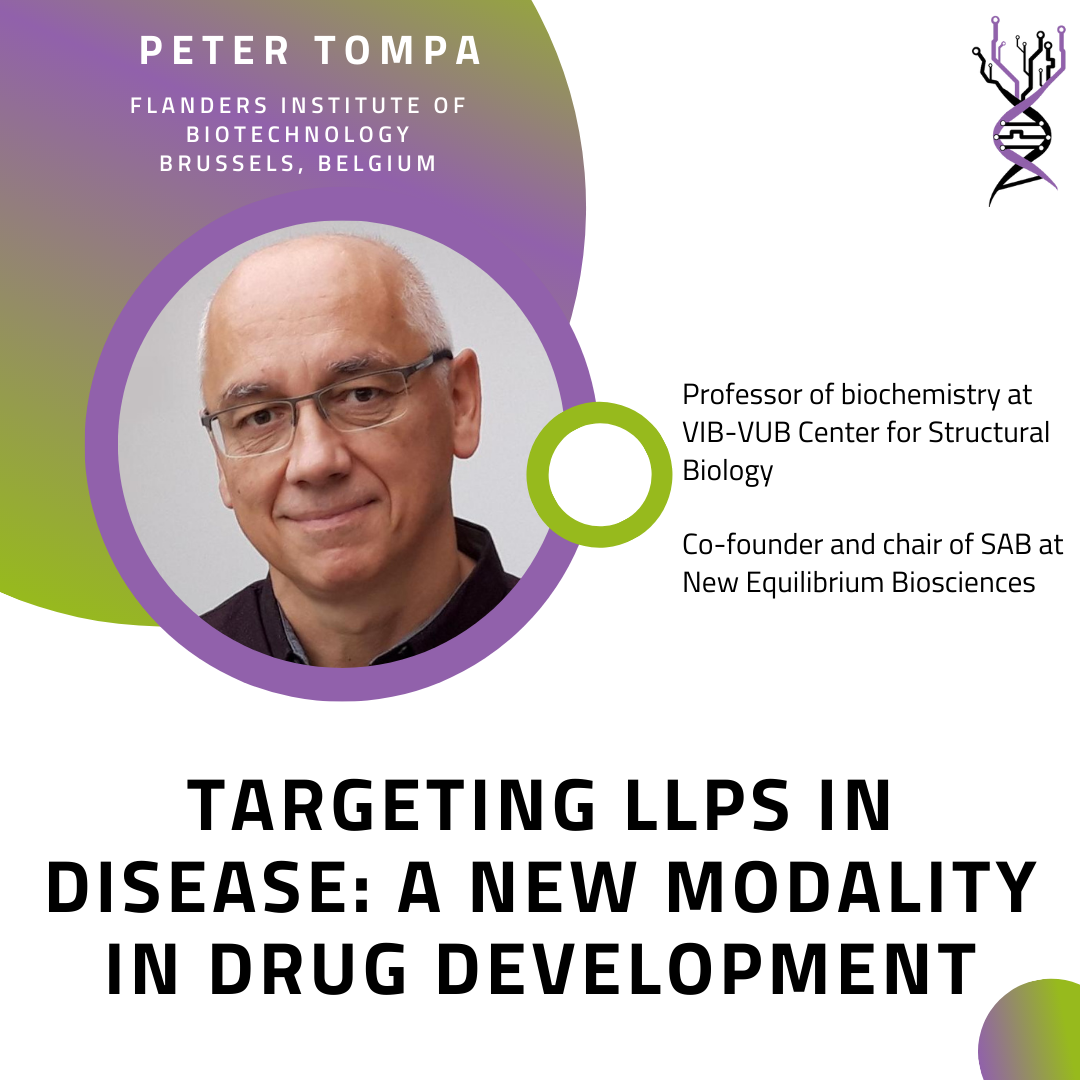 |
Prof. Dr. Peter Tompa
Group leader in VIB-VUB Center for Structural Biology, Brussels, Belgium
Prof. Tompa is one of the pioneer researchers of intrinsically disordered proteins (IDPs). He has developed many concepts for understanding the disorder-function relationships of these paradigm-breaking proteins. Recently, the focus of his research turned to understanding the role of structural disorder in liquid-liquid phase separation (LLPS) of proteins in cell physiology and disease, with a primary focus on amyotrophic lateral sclerosis. Lecture title: Targeting LLPS in disease: a new modality in drug development |
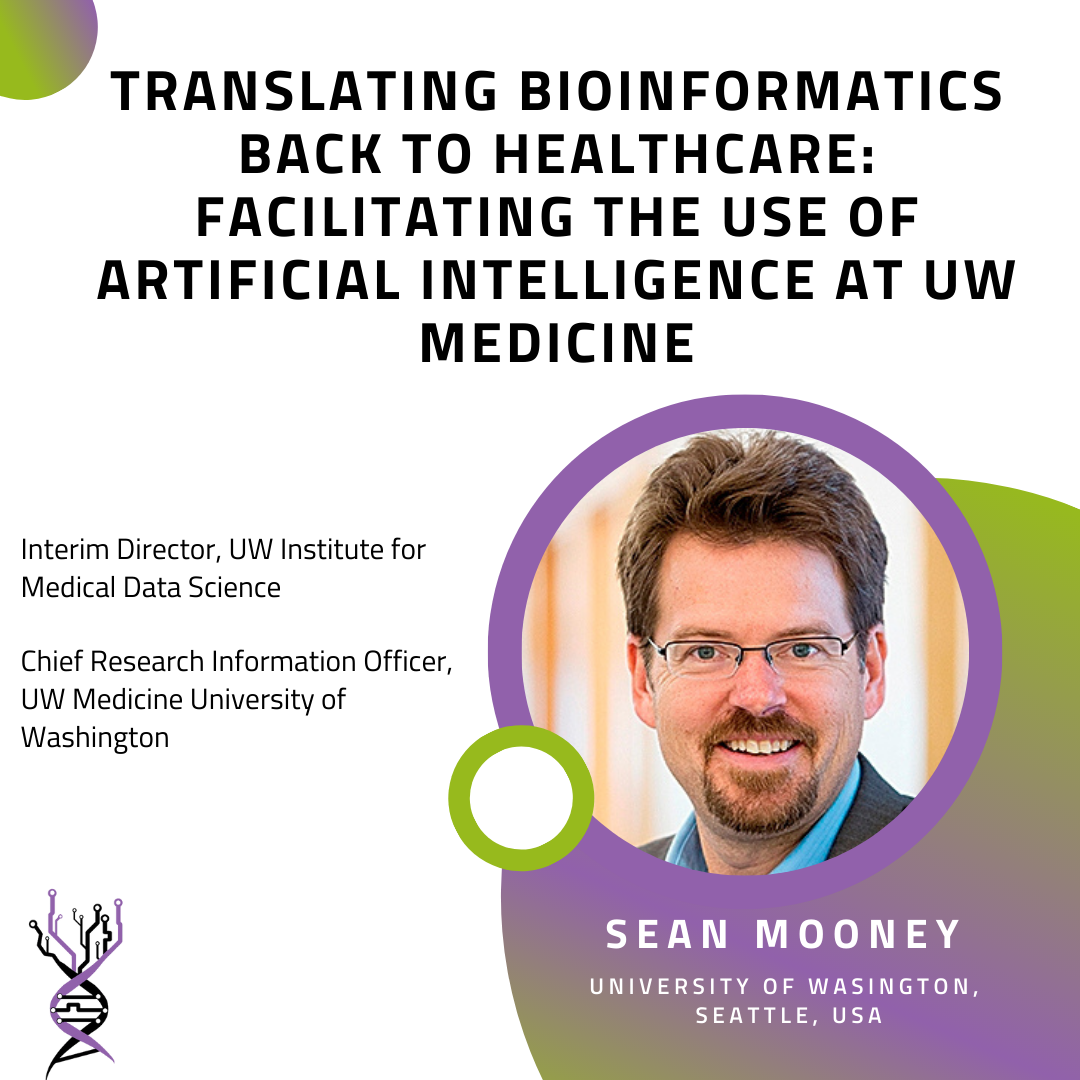 |
Prof. Dr. Sean Mooney
Interim Director, UW Institute for Medical Data Science, Chief Research Information Officer, UW Medicine University of Washington, Seattle, USA
Prof. Mooney has spent his career managing the development of collaborative electronic systems supporting biomedical research. His interests focus on leading the next generation informatics tools for biomedical research and in understanding the underlying molecular causes of inherited genetic diseases and cancer. Lecture title: Translating Bioinformatics Back To Healthcare: Facilitating the use of Artificial Intelligence at UW Medicine |
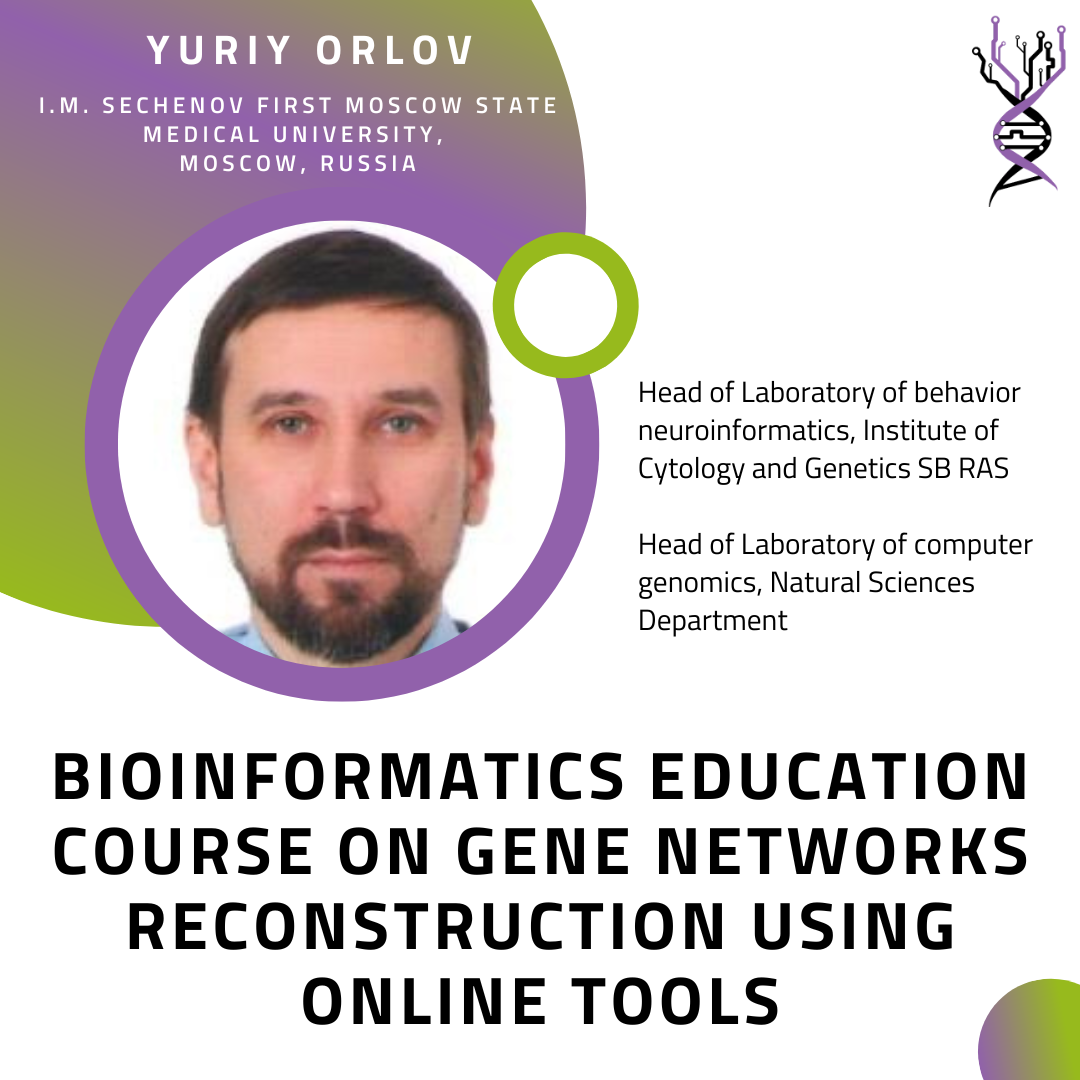 |
Prof. Dr. Yuriy Orlov
Head of Laboratory of behavior neuroinformatics, Institute of Cytology and Genetics SB RAS, Head of Laboratory of computer genomics, Natural Sciences Department, Novosibirsk State University, Novosibirsk, Russia
Prof. Orlov’s areas of interest are neuroinformatics, DNA sequence analysis, search for motifs and repetitive sequences, integration of genome annotation and expression data, analysis of structure and ChIP (Chromatin ImmunoPrecipitation) sequenced data (ChIP-seq, ChIA-PET) and Hi-C data, and application of supercomputers in bioinformatics. Lecture title: Bioinformatics education course on gene networks reconstruction using online tools |
 |
Prof. Dr. Predrag Radivojac
Professor at Khoury College of Computer Sciences, Northeastern University, Boston, Massachusetts, USA
Prof. Radivojac’s main research interests include computational biology and machine learning. He aims to improve our understanding of life at the molecular level and how molecular events affect higher level phenotypes. His group addresses these questions by developing algorithms and analysis techniques related to biological macromolecules function, mass spectrometry proteomics, genome interpretation, and precision health. Lecture title: A New Framework for the Use of Variant Interpretation Tools in Clinical Practice |




